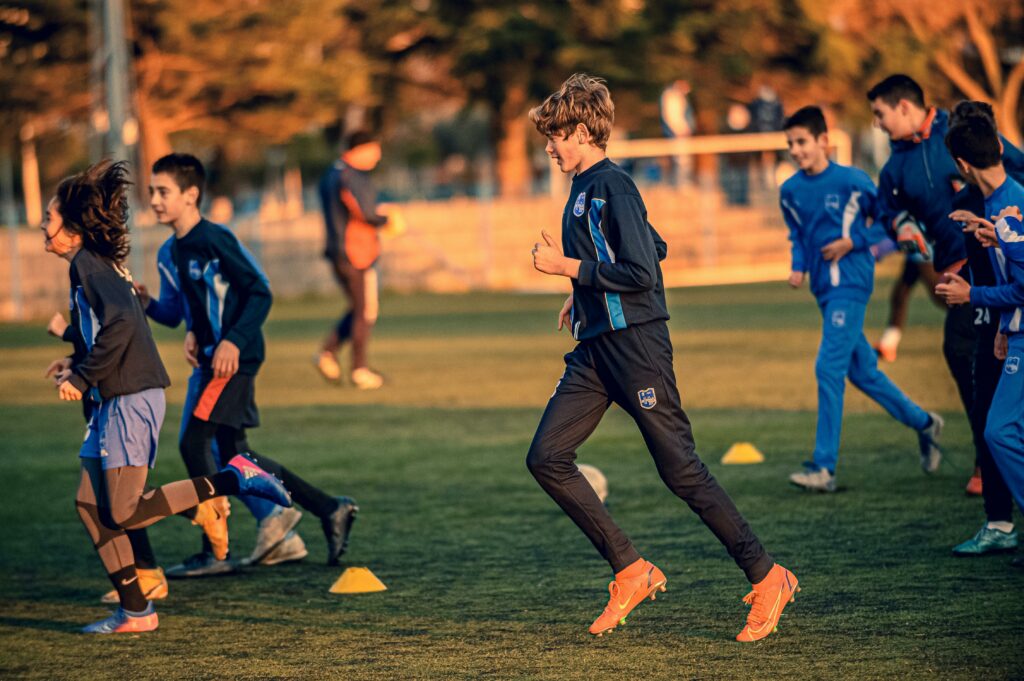As parents of young athletes, you naturally want the best for your children and aim to help them maximize their potential. The theory for maximizing youth athletic potential suggests that sometimes the best way to support your child’s growth is by stepping back and « letting them » navigate challenges independently. You encourage them, support them, and do everything in your power to help them succeed, but fostering growth through their own experiences is key. We all know that maximizing youth athlete potential often requires allowing your child to face these challenges on their own. The burning question: how can you support them in this process?
The « Let Them » theory, popularized by Mel Robbins in her podcast, suggests that one of the most powerful ways to empower your child is to give them the freedom to make their own decisions, face challenges, and even experience failure. This approach can be particularly valuable in the context of youth sports, where independence, resilience, and self-motivation are key ingredients to long-term success.
Why « Letting Them » matters in youth sports? (3 reasons)
- Building independence: By allowing your child to take ownership of their athletic journey, you’re helping them develop critical decision-making skills. Whether it’s choosing which sport to pursue, setting their own goals, or managing their training schedule, giving them control fosters a sense of independence. This autonomy is crucial as they grow older and face more complex challenges, both on and off the field.
- Encouraging resilience: No athlete’s journey is without setbacks!. By letting your child experience failure and frustration, you’re giving them the opportunity to develop resilience. Instead of shielding them from disappointment, you’re teaching them how to bounce back stronger. This resilience is not only essential in sports but also in life, as it prepares them to handle adversity with grace and determination.
- Fostering self-motivation: When children are given the freedom to pursue their passions on their terms, they become more self-motivated. Instead of feeling like they’re doing something because they have to, they start doing it because they want to. This intrinsic motivation is what drives long-term commitment and excellence in sports.
How to Implement the « Let Them » approach? (because it not so easy as parents…)
- Resist the urge to control: It’s natural to want to guide your child, but try to resist the urge to control every aspect of their athletic experience. Allow them to make their own decisions, even if they’re not the choices you would make.
- Encourage problem-solving: When your child encounters a challenge, encourage them to think through the problem and come up with their own solutions. Instead of jumping in to fix things, ask guiding questions that help them reflect on what they could do differently.
- Celebrate effort, not just results: Focus on praising the effort your child puts into their sport, rather than just the outcomes. By valuing hard work, persistence, and learning from mistakes, you’re reinforcing the importance of the process over the product.
- Be There for Support: « Letting them » doesn’t mean abandoning them. Be their biggest cheerleader, offer emotional support, and be a sounding board when they need someone to talk to. Your presence and encouragement will make a difference, even if you’re not directly intervening.
By embracing the « Let Them Theory », you’re giving your young athlete the tools they need to grow, succeed, and ultimately reach their full potential. Remember, it’s not about stepping back entirely—it’s about finding the right balance between support and independence, allowing your child to thrive in their athletic journey.
Useful links for maximizing youth athletic potential:
LISTEN to the Mel Robbins podcast: The “Let Them Theory” : A Life-Changing Mindset Hack That 15 Million People Can’t Stop Talking About
Parents: LEARN the basics of the « Emotional Coaching for Parents of young athletes » with an online resource
READ the post « Step by step guide for maximizing youth athletic potential«
And be patient, because Rome wasn’t built in a day!

